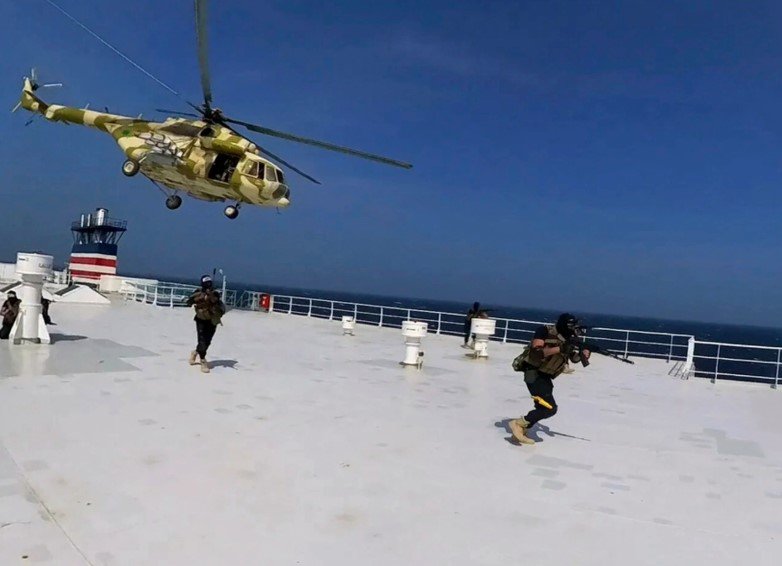Houthi militant media in Yemen has accused the United States of launching airstrikes on Hodeida’s airport, marking another escalation in the conflict just days after Washington intensified its campaign against the Iran-backed group.
A Fresh Wave of Allegations
Al-Masirah TV, the main media arm of the Houthi rebels, reported three strikes on the Red Sea port city’s airport on Saturday, attributing the attacks to what it called “American aggression.” The accusations come on the heels of a series of US-led strikes that began March 15, following renewed threats from the group against Israeli maritime routes.
This isn’t the first time such claims have surfaced. Between Wednesday and Friday, similar accusations emerged from the Houthi side, coinciding with US Central Command’s acknowledgment of ongoing operations targeting the militants.
President Donald Trump, reinstated to office this year, has taken a hardline stance, vowing to “annihilate” the group in response to its threats and alleged attacks on regional shipping lanes. The latest air raids, which the US says targeted key rebel leadership figures, have only deepened tensions.

Heavy Casualties and Contradicting Reports
The strikes have resulted in conflicting accounts of casualties. US officials maintain that precision strikes have successfully eliminated senior Houthi figures, but the Houthi-controlled health ministry paints a different picture, claiming at least 53 civilians were killed.
The truth remains murky, with independent verification nearly impossible in the conflict-ridden region. What’s clear, however, is the growing anger on the ground — and an uptick in anti-US rhetoric from Houthi leaders, who frame the strikes as an attack on Yemeni sovereignty.
The Hodeida airport, a strategic point on Yemen’s western coast, has long been a flashpoint. Its proximity to vital maritime routes makes it a prized target for both sides, intensifying its symbolic and tactical importance.
Political Firestorm and Regional Implications
The renewed US military action comes as part of a broader strategy to counter Iran’s influence in the region. The Houthis, backed by Tehran, have been a thorn in Washington’s Middle East policy — a factor that’s unlikely to change anytime soon.
Here’s what’s driving the surge in airstrikes:
- Geopolitical pressure: The US aims to curb Iran’s growing sway over Yemen.
- Security concerns: Houthi threats against Israeli shipping lanes raise fears of destabilizing Red Sea trade routes.
- Domestic politics: Trump’s tough-on-terror stance remains a pillar of his administration’s foreign policy reboot.
Meanwhile, regional players like Saudi Arabia and the United Arab Emirates, longstanding opponents of the Houthis, watch closely. The strikes could shift the balance of power — or trigger further retaliation.
What’s Next for Yemen’s Civil War?
Yemen’s conflict, already labeled the world’s worst humanitarian crisis by the United Nations, shows no signs of easing. The Houthis remain entrenched, despite years of bombings, sanctions, and international condemnation.
As US airstrikes intensify and Houthi forces dig in, analysts warn of a prolonged, bloodier chapter. Diplomacy feels increasingly out of reach, with both sides doubling down.
